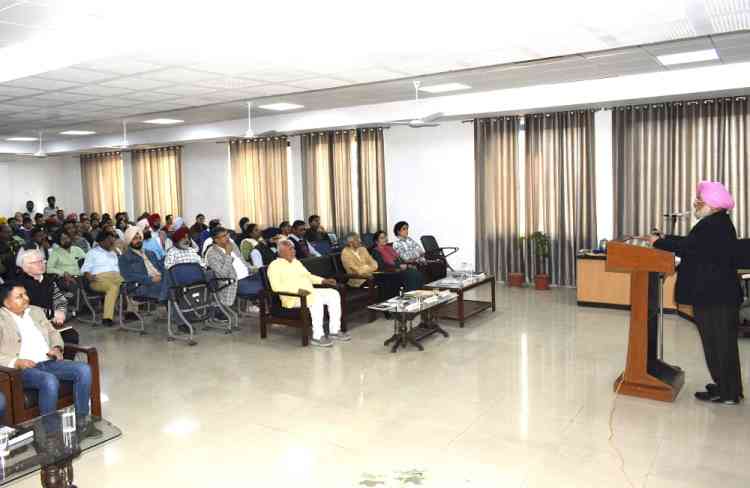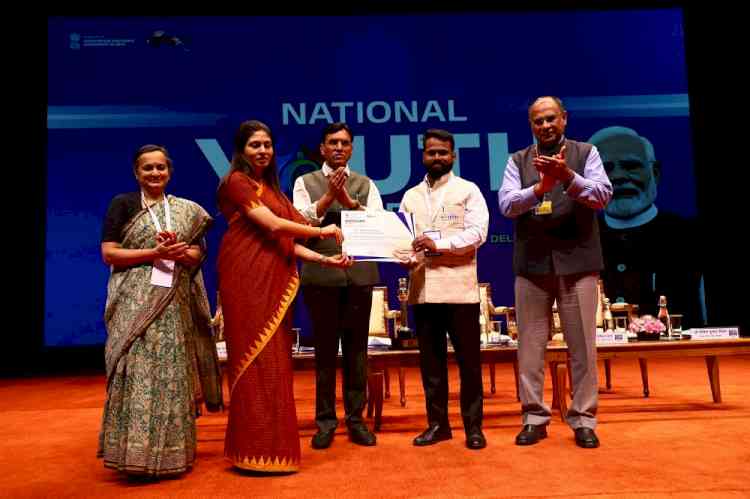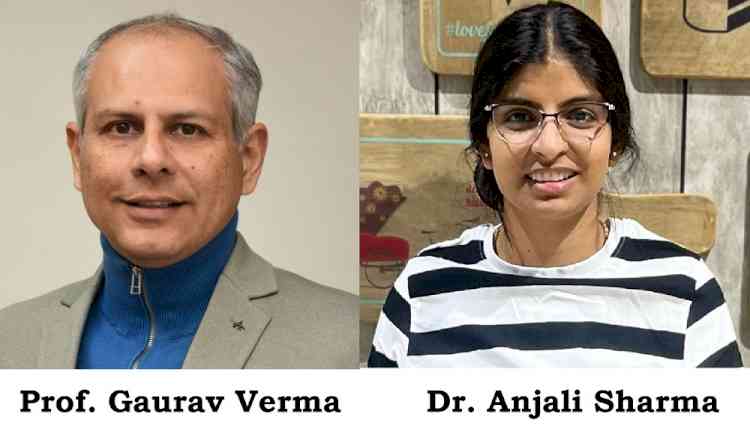Central University of Punjab hosts Special Lecture on NEP-2020 and Skill-Based Industry-Oriented Education
The Central University of Punjab organized a special lecture on the theme “Implementation of NEP-2020 & NCrF in the University System with Integration of Skill-Based Industry Orientation Courses.” The keynote speaker for the event was Prof. N.S. Kalsi, former Chairman of the National Council for Vocational Education and Training (NCVET).

Bathinda, November 29, 2024: The Central University of Punjab organized a special lecture on the theme “Implementation of NEP-2020 & NCrF in the University System with Integration of Skill-Based Industry Orientation Courses.” The keynote speaker for the event was Prof. N.S. Kalsi, former Chairman of the National Council for Vocational Education and Training (NCVET).
Prof. Kalsi began by highlighting India’s emergence as the world’s fifth-largest economy, driven by 59% internet penetration and robust digital public infrastructure. He explained how society has evolved from agriculture and industry to the current information-driven “Society 4.0” and is transitioning towards a super-smart “Society 5.0.” He noted that similar transformations are occurring in the industrial and agricultural sectors. Industry has entered the Industry 4.0 phase, defined by digital technologies and sustainable value chain integration. Similarly, agriculture has embraced Agriculture 4.0, leveraging smart farming systems, data-driven decisions, vertical integration, and sustainability to achieve resilience.
Prof. Kalsi emphasized the critical role of India’s extensive education and skilling ecosystem in preparing a competent workforce to meet these advancements. He stressed that higher education institutions must lead efforts to upskill youth and equip them for future challenges. He detailed how the National Education Policy (NEP) 2020 and the National Credit Framework (NCrF) aim to revolutionize learning by promoting holistic, multidisciplinary-interdisciplinary--transdisciplinary education, and experiential learning. These reforms also emphasize faculty development, multiple entry-exit options, and the integration of formal, non-formal, and informal learning systems.
He further underscored the importance of aligning NEP-2020 and NCrF with key frameworks such as the National Higher Education Qualification Framework (NHEQF), the National Skill Qualification Framework (NSQF), and the National Curriculum Framework (NCF) to enhance employability, life skills, and soft skills. Advocating for a future-skilling framework, Prof. Kalsi called for leveraging digital technologies and fostering multidisciplinary education. He stressed that this approach would enhance digital literacy, AI awareness, and advanced skills, enabling learners to thrive in emerging world order.
Vice-Chancellor Prof. Raghavendra P. Tiwari expressed his gratitude to Prof. Kalsi for his thought-provoking lecture and reaffirmed the university’s commitment to implementing the principles of NEP-2020 and NCrF to establish a sustainable and inclusive education system. He highlighted that the university has already adopted the Learning Outcome-Based Curriculum Framework (LOCF), Academic Bank of Credits (ABC), Multiple Entry and Exit (MEME), and other reforms, while actively working to expand skill development opportunities across all its programmes. Prof. Tiwari emphasized that the implementation of NEP-2020 and NCrF, along with the integration of skill-based, industry-oriented courses, can play a transformative role in equipping youth with skills aligned with global technological advancements. He expressed firm belief that this lecture will inspire our faculty members to actively contribute to realizing this vision.
The program began with a warm welcome by Prof. Monisha Dhiman, Director of IQAC, followed by an introduction of the speaker by Prof. R.K. Wusirika, DIA. The event concluded with a formal vote of thanks delivered by Prof. P.K. Mishra. Faculty members and officials of university enthusiastically attended this programme.


 City Air News
City Air News 








